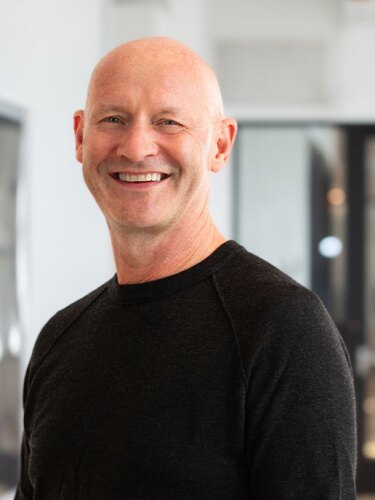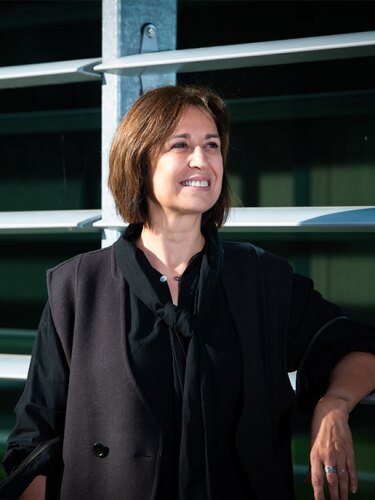Three executives whose combined careers include working at companies including Amgen, AstraZeneca, The Janssen Pharmaceutical Companies of Johnson & Johnson, Pfizer and Takeda share their career journeys.
Not everyone stays at large biopharma companies for their entire careers. Some move into smaller organizations. Their reasons vary. An opportunity too good to pass up comes along. They want to do specialized work that could help a loved one. Their career path naturally leads them into a smaller organization. Whatever the reason, these biopharma professionals end up at companies that differ in ways both challenging and rewarding from the ones they left behind.
Below, three executives with dozens of combined years of experience at companies including Amgen, AstraZeneca, The Janssen Pharmaceutical Companies of Johnson & Johnson, Pfizer and Takeda share their journeys of moving from large to small biopharmas—and offer advice for those making or considering similar moves.
John Dunlop: The Right Opportunity at the Right Time
During his time in Big Pharma, which included over 15 years in director-and-above positions at Amgen, AstraZeneca and Pfizer, Aliada Therapeutics Chief Science Officer John Dunlop watched colleagues leave large companies for smaller organizations. While he had opportunities to do the same, he’d had great experiences with his employers, so he didn’t immediately jump at the chance. However, as Dunlop told BioSpace, eventually, he felt his best opportunity for growth and development might be at a smaller company.
He found that opportunity at Neumora. Dunlop left a five-year stint as a vice president at Amgen to help launch the clinical-stage biotech company, which was founded to pioneer precision medicines for brain diseases. The company, he explained, was aiming to segment large heterogeneous disease classifications into more homogeneous subpopulations so it could better match those groups to drugs that could have an impact on them.
“That seemed like something to me that, if we could make that work, would be very, very compelling,” he said.
Dunlop spent three years at Neumora, first as chief scientific officer and then as head of research and development. While he wasn’t looking to leave the company, someone at Aliada asked if he’d be interested in joining that organization, which develops next-generation therapeutics for patients. The work intrigued him. Knowing it could have a massive impact on patients, Dunlop left Neumora in September to become Aliada’s chief scientific officer.
Life at small biopharmas: a faster pace and fewer resources
Having now worked at two small biopharma companies, Dunlop said he’s experienced what other colleagues who made similar moves have described: the ability to be nimbler, move faster and make decisions quicker within the smaller environment.
“Sometimes, in large companies, you spend a lot of time preparing in meetings to go to another meeting to get an approval to do things,” he noted. “You largely strip that away when you’re in small companies because the senior team really becomes accountable for rapid decision making.”
Dunlop has also experienced challenges in the smaller environment. He said one of the biggest is having fewer resources than at larger businesses. If you need something at a big company, he explained, it doesn’t take long to find someone who can provide the expertise you need. At a smaller business, especially a startup, you don’t have that same infrastructure.
You have to sort of change your mindset into ‘How am I going to find that? How do I find someone that can consult with me because I don’t need to bring someone on full time just yet.’
Overall, Dunlop has enjoyed working at smaller biopharmas. He shared that one reason is that being on smaller teams—he helped build Neumora to over 100 people, and Aliada has 22 employees—has allowed him to be involved in pretty much everything that’s going on. He’s also enjoyed stepping out of his core area of expertise from time to time in various ways, such as addressing real estate needs.
Advice for moving to small biopharmas: focus on similarities
If you’re moving to a smaller biopharma company, Dunlop advised focusing on what’s similar to the large business you’re leaving, such as addressing important problems and challenges that can make a difference for patients.
“You’re still working on exciting science, and as a scientist, that’s obviously very motivating,” he said.
Ann Beliën: A Personal Reason for Entrepreneurship
When Rejuvenate Biomed CEO and Founder Ann Beliën was working at The Janssen Pharmaceutical Companies of Johnson & Johnson, her father developed age-related conditions including cardiovascular, Alzheimer’s and Parkinson’s diseases. She noticed that his medical team would solve one issue only to have another pop up. Wanting to understand what was happening, Beliën began spending her free time looking into the biology of aging. She wanted to see if it made sense to approach age-related diseases in a different way, one that considers how an older body’s health situation differs from a younger one’s.
Beliën found the approach did make sense but told BioSpace the work she wanted to do was better suited for a small organization—an agile one where people could quickly make decisions and move fast on the science.
That said, Beliën noted the idea to start her own business did not pop up until the moment she felt she had enough knowledge to make a difference with it.
“I’m not going to be nagging that other people are not doing it,” she recalled thinking at the time. “If I want it to happen, I have to do it.”
In 2017, she did. Beliën left Janssen, where she’d spent 17 years, first as a scientist and eventually overseeing campus strategy and open innovation, to start Rejuvenate Biomed. The Belgium-based clinical-stage biotech focuses on discovering and developing therapeutics that delay that onset of age-related diseases.
Life as a small biotech owner: making it happen
Beliën has found that being the founder and CEO of a small biotech is very different from working at a large biopharma.
You’re responsible for everything. You have to make it happen. Everything that goes wrong, it’s because of you. Everything that goes right is because of your team.
Beliën said that’s why she quickly built a team of people smarter than herself who are passionate about their work. There are now 20 employees at Rejuvenate Biomed.
Another difference between owning a small company and working at a large one is that as an entrepreneur, you’re responsible for finding funding for the company. Beliën said that’s been her biggest challenge. You have to figure out how to get money and how to apply it smartly, she noted.
To tackle that challenge, Beliën shared she pitched a lot of people about her business. She also sought advice from two friends who were in the venture capitalist world, although not on the life sciences side. Those friends, she said, wound up investing in Rejuvenate.
Advice for starting a company: finding the right people
If you’re a biopharma professional looking to start your own business, Beliën recommended not only doing your homework, including conducting a competitive analysis, but also having the right advisers around you—people you fully trust who are good at what they do and are a good fit for you.
Hiring the right people is also important, she noted.
“I think the most important one is to make sure that you surround yourself with experts in the field, that everybody that you hire is smarter than yourself,” Beliën said. “Do not be afraid to do that.”
Josh Schafer: Embracing a Career Evolution
Moving from a large biopharma to a small one was less of a conscious decision and more of a career evolution for Josh Schafer, chief commercial officer and executive vice president of business development at Zevra Therapeutics. That evolution included over 20 combined years of experience at Mallinckrodt Pharmaceuticals, Astellas Pharma, Takeda and Pfizer, starting when it was Searle.
“Initially, I started out in larger companies because I was really interested in building my skills and capabilities and getting to know the industry, and big companies are great for that type of exposure,” Schafer told BioSpace. “But I eventually realized that I really enjoy working across a variety of different roles and responsibilities rather than just focusing in on one area.”
Because of that, Schafer said, he looked for opportunities within or outside his larger companies that allowed him to leverage the breadth of his experience, contribute in a meaningful way and still learn new things. For example, he served on the boards of smaller organizations including Pharnext, an advanced clinical-stage biopharmaceutical company developing novel therapeutics for neurodegenerative diseases.
When an interim CEO role opened at Pharnext in November 2022, Schafer left his job as Mallinckrodt’s senior vice president and general manager of the autoimmune and rare disease business to take it. Three months later, he accepted a position as chief commercial officer and executive vice president of business development at Zevra Therapeutics, a rare disease therapeutics company that creates therapies for diseases with limited or no treatment options.
Schafer said he was attracted to Zevra because it was an opportunity to help the organization transition into a commercial stage company. In addition, he noted, “I wanted to be a part of helping to build something that would be lasting and meaningful for patients.”
Life at small biopharmas: more accountability and proximity to patients
During his time at smaller biopharmas, Schafer has seen multiple ways those organizations differ from their larger counterparts, including people being accountable for a larger breadth of activities and responsibilities.
That’s by no means suggesting that people at larger companies don’t do as much. It’s just that you’ve got a larger team and greater resources that you can kind of lean on to get some of that work done. And in a smaller company, you really have to be very self-reliant.
While there are challenges like that at smaller biopharmas, there are also benefits. For example, Schafer said, employees can get closer to the patients and communities they serve. He shared that at Zevra, which has over 80 employees, some work closely with patient advocacy groups.
“They sort of serve as the voice of the patient as we make various decisions and think about different strategies,” Schafer said.
Advice if you’re considering a small biopharma
If you’re thinking about moving from a large biopharma to a small one, Schafer said it’s important to know what motivates you. Do you like to roll up your sleeves and really get into the weeds of what needs to get done, or do you enjoy managing people and teams? At a smaller organization, he said, you need to do a bit of both.
“If you’re energized by getting to know your colleagues and working very closely with them and really getting into the details of your work, then I think a small company can be a great, great option,” Schafer said.
Interested in more career insights? Subscribe to Career Insider to receive our quarterly life sciences job market reports, career advice and more.









